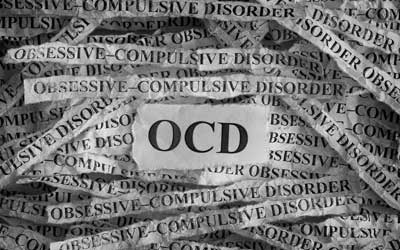Luvox CR is a selective serotonin reuptake inhibitor (SSRI) approved for treating obsessive-compulsive disorder (OCD) in children through adults. It helps to regulate the moods and thoughts associated with OCD.
The starting dosage is 100 mg by mouth once daily. The dosage can be increased to a maximum of 300 mg by mouth once daily.
The active ingredient is fluvoxamine.
For a full list of precautions for SSRIs, speak with your doctor or pharmacist.
Frequently Asked Questions about Luvox CR (Fluvoxamine)
What is Luvox CR used for?
Luvox CR is utilized to treat obsessive-compulsive disorders (OCD) by increasing the amount of serotonin, a substance that helps regulate mood, in the brain.
What are the common side effects of Luvox CR?
Common side effects include nausea, vomiting, drowsiness, dizziness, loss of appetite, trouble sleeping, weakness, and sweating.
Are there any serious side effects associated with Luvox CR?
Yes, serious side effects may include skin rash, blisters, fever, joint pain, mood or behavior changes, anxiety, panic attacks, trouble sleeping, impulsiveness, irritableness, agitation, hostility, aggression, restlessness, hyperactivity, increased depression, thoughts of self-harm, and racing thoughts.
Are there any warnings associated with Luvox CR?
Luvox CR has been associated with an increased risk of suicidal thoughts or actions in children and young adults. It is not approved for use in all children, and those taking it should be monitored closely for signs like low mood, nervousness, restlessness, panic attacks, or changes in mood or actions.
How should I take Luvox CR?
It's important to follow the doctor's instructions when taking Luvox CR. Do not stop taking it abruptly as it may increase the risk of side effects. If needed to stop, it should be done gradually as directed by the doctor.
Can I drive or operate heavy machinery while taking Luvox CR?
Avoid driving and doing other tasks that require alertness until you know how Luvox CR affects you.
Can I drink alcohol while taking Luvox CR?
It's advisable to avoid drinking alcohol while taking Luvox CR.
Can Luvox CR cause bleeding?
Luvox CR may raise the chance of bleeding, which in some cases can be life-threatening. It's important to talk with your doctor if you have concerns about this risk.
How long does it take for Luvox CR to work?
It may take several weeks to see the full effects of Luvox CR.
Is Luvox CR safe for older adults?
If you are 65 or older, use Luvox CR with care as you could experience more side effects.

